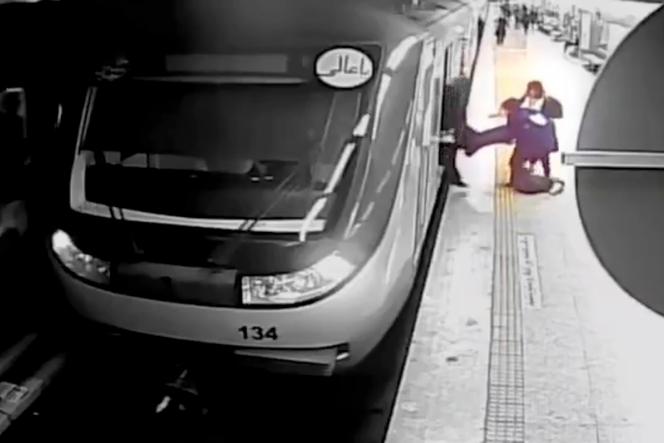


Armita Geravand was 17. She loved Korean pop music, took part in taekwondo and enjoyed painting. She was attacked on October 1 in the Teheran metro by women working for the Iranian regime because she was not wearing a headscarf. After four weeks in a coma, the teenager died on Saturday, October 28, in a Tehran hospital. She was buried on Sunday in the Behesht-e Zahra cemetery in the south of the city, in the presence of numerous plainclothes security forces.
At her funeral, a dozen people were arrested, including the well-known Iranian lawyer Nasrin Sotoudeh, the 2012 winner of the European Parliament's Sakharov Prize for Freedom of Thought. The Iranian authorities deny any responsibility for Geravand's death, alleging that she hit her head on the floor after fainting due to a fall in blood pressure.
The girl's death tragically echoes that of Mahsa (Jina) Amini, who died on September 16, 2022. Beaten in police custody because of her "improperly worn" headscarf, she too fell into a coma. When her death was announced, Iran was overwhelmed by a wave of protests of unprecedented scope and duration.
For months, Iranians across the country took to the streets to vent their anger at the Islamic Republic government. More than 500 people were killed, including dozens of children. Even today, Iranian women go out into the streets without headscarves to denounce this compulsory requirement. They risk harassment, arrest, fines, confiscation of their cars and dismissal from their jobs.
In recent weeks, Iranians have reported the presence of plainclothes agents, particularly in subway stations, who attack women deemed "not properly covered." According to sources quoted by BBC Persian, Geravand was jostled by a group of "hejabban" ("hijab supervisors" in Persian) because she was not wearing her headscarf, which had fallen over her shoulders. Her head then hit a metal bar in a train car. The Iranian authorities deny this version of events. They have published images recorded by surveillance cameras in the station, but none from inside the carriage where the incident happened.
The girl's parents and friends were interviewed several times by Iranian state television, a propaganda tool, repeating the version put forward by the regime. However, some Iranians, pointing to the desperate look on the faces of those interviewed and their disorganized speech, believe that the girl's relatives were forced to say these things. Forced statements are common in Iran.
You have 35% of this article left to read. The rest is for subscribers only.
